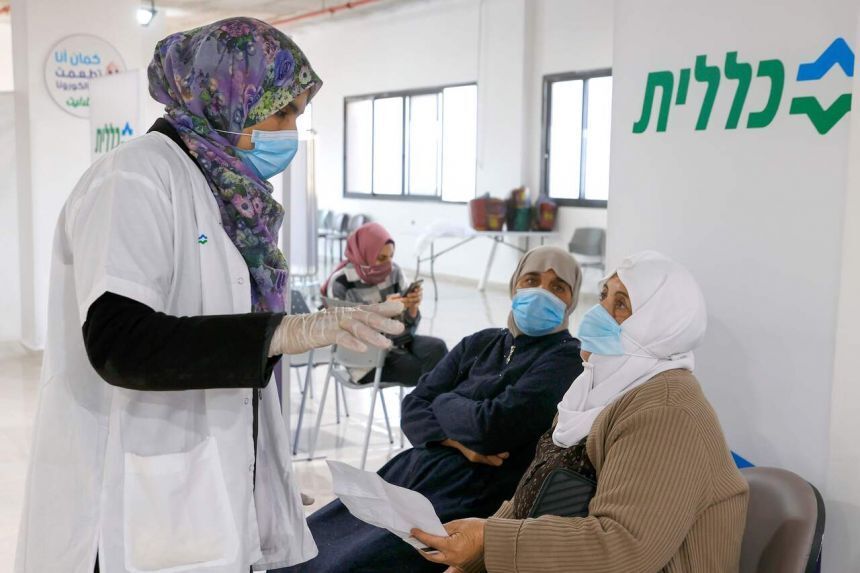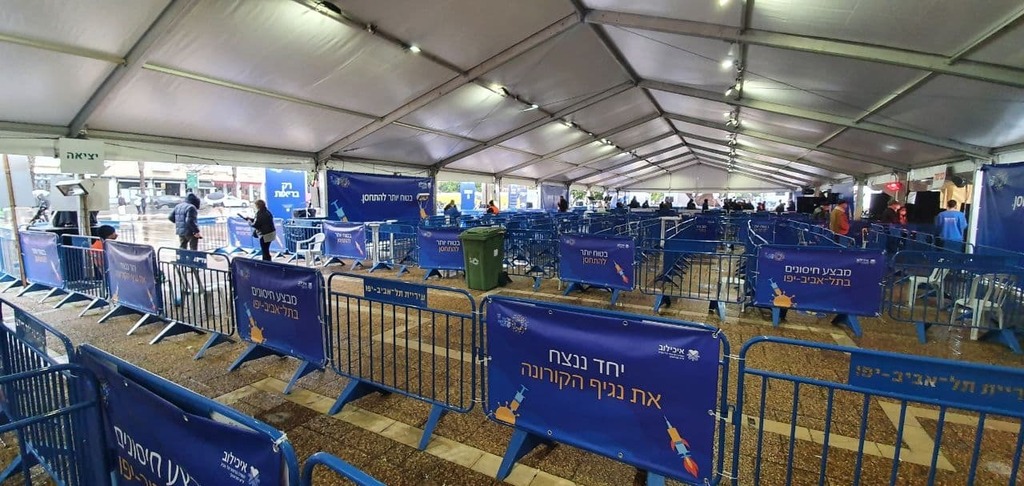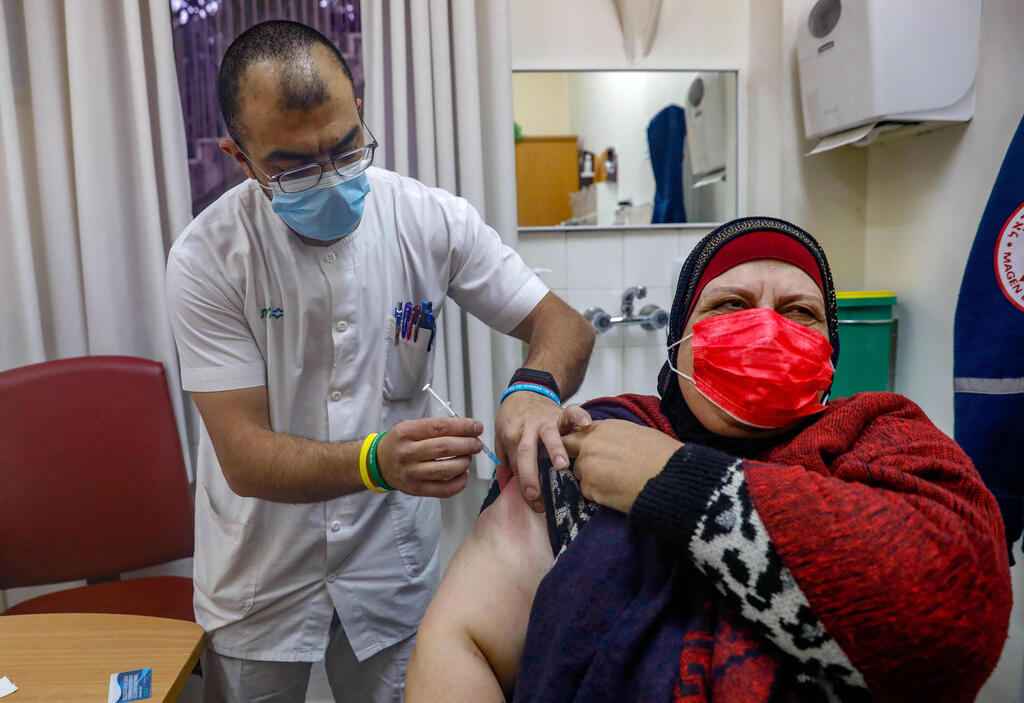Getting your Trinity Audio player ready...
In stark contrast to the images of long and crowded queues at Israel's COVID-19 vaccination centers from recent weeks, citizens' turnout seemed to have stagnated on Monday, leaving health workers waiting at empty facilities.
So far, 3,081,000 Israelis have been received the first vaccine shot, and close to 1,800,000 of them have also received the second booster shot.
According to Health Ministry data, 83% of Israelis over the age of 60 had received the first shot as of Monday, compared to 80% last week. These figures are still a long haul from the government's goal to vaccinate at least 90% of this age group.
While the Health Ministry has expanded the campaign to include citizens aged 35 and over and teens between the ages of 16-18, the country's health maintenance organizations (HMOs) called to scrap the age cap altogether. A decision on the matter is expected later in the week or the following one.
Israel's largest healthcare provider, Clalit Health Services, has allowed people outside these age groups to get vaccinated on a number of occasions over the past week, citing concerns the vaccines could expire before being used.
3 View gallery


A healthcare worker speaks to an Israeli Arab woman before administering COVID-19 vaccine
(Photo: AFP)
However, with 30% of the general population already vaccinated, only 18% of Israel's Arab sector and 24% of the ultra-Orthodox sector have been given the first vaccine dose.
The vaccination rate seems to fluctuate significantly among different Arab communities across the country.
For example, 81% of people over the age of 60 have already received at least one vaccine dose in the northern Arab city of Sakhnin, while only 21% of that same age group have been inoculated in the southern Bedouin community of Ar'arat an-Naqab.
Leumit Health Care Service Director-General Haim Fernandes said that healthcare providers are focusing on educating citizens who are reluctant to take the shot, especially in the Arab sector, which he says has a "worryingly low turnout."
Fernandes also noted that there is a correlation between socioeconomic status and vaccination rates.
"Much of the Arab sector is in a very low socioeconomic status and this very much influences vaccination rates," he said. "We try to bridge the gap and arrive in communities with vaccine doses, sometimes we come to peoples' houses."
Fernandes called on the Arab public's leaders to lend a hand in an effort to convince people to get vaccinated.
Health experts also cited rampant fake news as one of the leading causes of the low turnout in the Arab sector is fake news about the vaccine.
"We are making major efforts on this issue to counteract any fake news we come across, be it through in-person lectures or on social media," said Dr. Huzaima Hamisi Abu Sibia, an infectious disease expert at Clalit.
"We announce our lectures in advance and take peoples' questions. The concerns are nationwide - for example, the [vaccine's] effect on fertility, the introduction of genetic material and [computer] chips."



